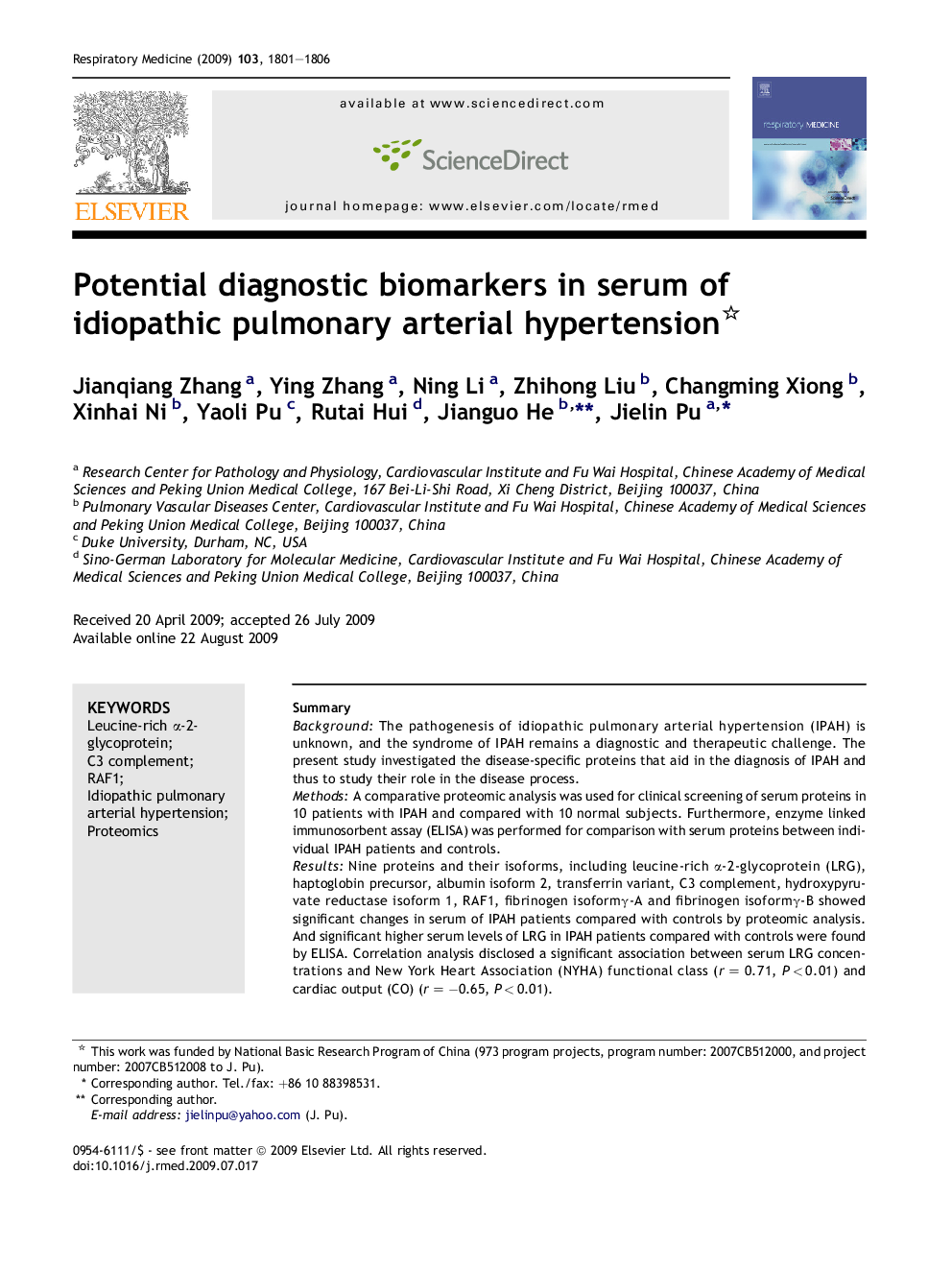| Article ID | Journal | Published Year | Pages | File Type |
|---|---|---|---|---|
| 4210808 | Respiratory Medicine | 2009 | 6 Pages |
SummaryBackgroundThe pathogenesis of idiopathic pulmonary arterial hypertension (IPAH) is unknown, and the syndrome of IPAH remains a diagnostic and therapeutic challenge. The present study investigated the disease-specific proteins that aid in the diagnosis of IPAH and thus to study their role in the disease process.MethodsA comparative proteomic analysis was used for clinical screening of serum proteins in 10 patients with IPAH and compared with 10 normal subjects. Furthermore, enzyme linked immunosorbent assay (ELISA) was performed for comparison with serum proteins between individual IPAH patients and controls.ResultsNine proteins and their isoforms, including leucine-rich α-2-glycoprotein (LRG), haptoglobin precursor, albumin isoform 2, transferrin variant, C3 complement, hydroxypyruvate reductase isoform 1, RAF1, fibrinogen isoformγ-A and fibrinogen isoformγ-B showed significant changes in serum of IPAH patients compared with controls by proteomic analysis. And significant higher serum levels of LRG in IPAH patients compared with controls were found by ELISA. Correlation analysis disclosed a significant association between serum LRG concentrations and New York Heart Association (NYHA) functional class (r = 0.71, P < 0.01) and cardiac output (CO) (r = −0.65, P < 0.01).ConclusionsThese results indicate that there are significant differences in the expression of proteins in the serum of patients with IPAH and normal subjects. And the measurement of LRG, RAF1 and C3 complement levels in the serum may be helpful for the diagnosis of IPAH. In particular, LRG may be a specific prognostical biomarker of IPAH.
